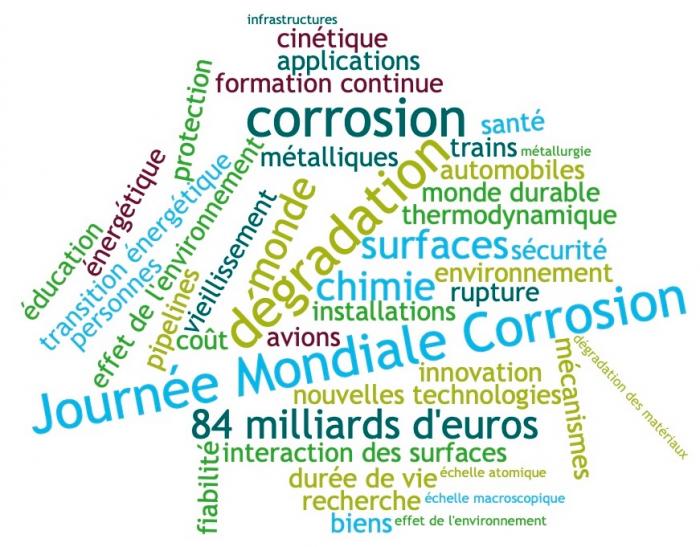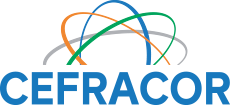
For a Sustainable World: Corrosion Awareness Day, April 24th, 2020

By Philippe Marcus
President of CEFRACOR (French Corrosion Society), Former President of the EFC (European Federation of Corrosion), Head of Physical Chemistry of Surfaces of Institut de Recherche de Chimie Paris, Chimie ParisTech , CNRS, PSL University.
In France, environmental material degradation has cost over 80 billion euros in 2019, and more than 2500 billions of dollars worldwide. An increased effort in scientific and technological research and a better awareness in education and training (both initial and continuing), are essential. The general public as well as public authorities should be alerted. This is the objective of the Corrosion Awareness Day, launched by the World Corrosion Organisation, with support from the European Federation of Corrosion and the French Corrosion Society, scheduled for April 24th, 2020.
84 billion euros lost: this is the estimated amount of the cost of corrosion in France in 2019, based on the usually acknowledged cost of about 3.5% GDP.
Aging, degradation, failure of metallic materials used for road infrastructures, oil pipelines, gas pipes, transportation (cars, trains, airplanes), all this results mainly from the material surface interaction with the environment, and the chemical reaction of corrosion. Besides this exorbitant cost, major problems are linked to materials degradation under the effect of the environment: damage to the reliability of industrial facilities, to the safety of people and goods, health issues.
We must prevent or at least slow down corrosion: an increased awareness is necessary, and it should not be limited to materials specialists, who are widely informed, but should be more general, and reach decision makers, public authorities, and the general public (from youngest to oldest!)
A lack of awareness or understanding of scientific and technical aspects of corrosion phenomena, which are indeed complex, is often observed, and results in an under estimation of the importance of risks and cost.
What are the action levers? The answer is: education and training, research, and innovation.
Education at its broadest sense, which should include initial education at every level, from primary to university and engineering schools, as well as continuing training (technicians and engineers).
Academic and industrial research: high-level research is already in place in French public laboratories and large organisations (Universities, Engineering schools, CNRS, CEA). Most major French corporations have an R&D activity on corrosion protection. However, these efforts should be increased (as well as the total research effort in France !).
Fundamental research on corrosion mechanisms should take into account all scales, the length scale, from the atomic or nanometric scale (at which the corrosion phenomena start on a material surface), to the macroscopic scale (at which the degradation often becomes irreversible, and failure occurs), and the time scale, which is a function of the targeted lifetime (a few seconds for the launch of a rocket, to hundreds of thousands of years for nuclear waste materials storage). The new knowledge thus produced should be used as a base for more applied research and for the development of new technologies.
Beyond classic areas of metallic materials usage, which concern a large spectrum of industrial sectors, a better protection of materials against corrosion is a key factor in the development of new applications, in particular to ensure the energy transition (fuel cells, batteries, photovoltaic). Hence, as an example, in the perspective of an energy policy based on hydrogen, many materials problems arise and corrosion protection is a major issue.
Awareness actions for the greater public and public authorities are also required.
To promote awareness of societal issues related to corrosion, and mobilise the main actors, the World Corrosion Organization (WCO) has launched, in 2010, a Corrosion Awareness Day. In 2020, this Awareness Day has been scheduled on April 24th.
This action is relayed at the European level by the European Federation of Corrosion and at the national level by the CEFRACOR (French Corrosion Society)
Published in Matériaux et Techniques



